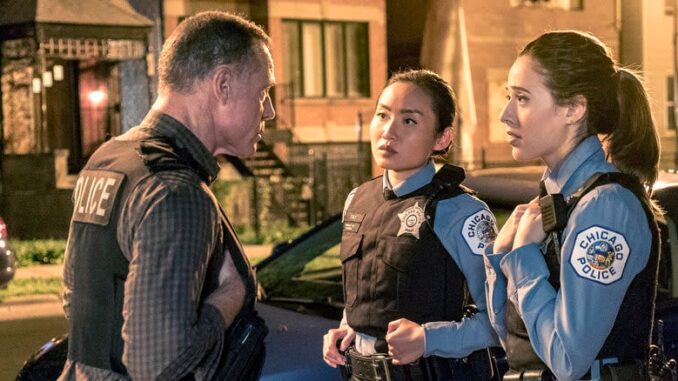
Chicago PD isn’t just another crime procedural; it’s a raw and often unflinching exploration of the human beings behind the badges and the profound emotional weight they carry in their relentless pursuit of justice. It’s this potent blend of high-stakes investigations intertwined with deeply personal struggles and moral complexities that allows the show to connect with audiences on a visceral level, making it far more than just a weekly dose of crime-solving.
One of the primary reasons for the show’s resonance lies in its well-developed and relatable characters. The members of the Intelligence Unit are not simply archetypes; they are flawed individuals with their own backstories, vulnerabilities, and personal demons. We witness their camaraderie, their loyalty to one another, and the emotional toll that their demanding jobs take on their lives. This human element allows viewers to invest in their journeys, empathize with their struggles, and feel the weight of their decisions, both professionally and personally. Whether it’s Halstead’s internal conflicts, Upton’s fierce independence, Atwater’s unwavering moral compass, or Burgess’s compassionate heart, each character offers a point of connection for different viewers.
The show masterfully balances the procedural aspects of crime-solving with the emotional consequences of violence and injustice. We see the meticulous investigation process, the gathering of evidence, and the strategic maneuvers to catch criminals. However, Chicago PD doesn’t shy away from depicting the impact of these crimes on victims, their families, and the officers themselves. The raw grief, the lingering trauma, and the burning desire for accountability are palpable, creating an emotional undercurrent that elevates the narrative beyond mere plot points.

Furthermore, Chicago PD often delves into morally gray areas, particularly through the character of Sergeant Hank Voight. His sometimes-questionable methods in the pursuit of justice force audiences to confront complex ethical dilemmas. Is bending the rules acceptable if it leads to catching a dangerous criminal? Where is the line between justice and vengeance? These uncomfortable questions resonate because they mirror real-world debates surrounding law enforcement and the complexities of achieving justice in an imperfect system. This moral ambiguity adds a layer of intellectual engagement to the emotional investment.
The show also taps into the universal desire for justice. Viewers are drawn to the idea of righting wrongs, holding perpetrators accountable, and finding closure for victims. Chicago PD provides a narrative space where these desires are explored, even if the path to justice is often fraught with obstacles and moral compromises. The satisfaction of seeing a criminal brought to justice, even through unconventional means, can be cathartic for the audience.
Moreover, the dynamic between the characters fuels the emotional core of the show. The strong bonds of loyalty and the unwavering support they offer each other in the face of adversity create a sense of family within the unit. These relationships provide moments of warmth and connection amidst the darkness of their work, offering viewers a sense of hope and resilience. The banter, the shared vulnerabilities, and the unspoken understanding between team members contribute significantly to the show’s emotional depth.
Finally, Chicago PD often tackles relevant social issues, such as police brutality, systemic racism, and the challenges faced by marginalized communities. By weaving these real-world complexities into its narratives, the show sparks dialogue and encourages viewers to think critically about the broader context of crime and justice in urban environments. This engagement with timely and important issues adds another layer of resonance beyond pure entertainment.
In conclusion, Chicago PD‘s enduring appeal lies in its powerful combination of compelling characters, high-stakes crime-solving, and a deep exploration of the emotional and ethical complexities inherent in the pursuit of justice. By grounding its gripping narratives in relatable human experiences and confronting difficult moral questions, the show forges a strong connection with its audience, making it a resonant and thought-provoking portrayal of law enforcement in the modern urban landscape.
